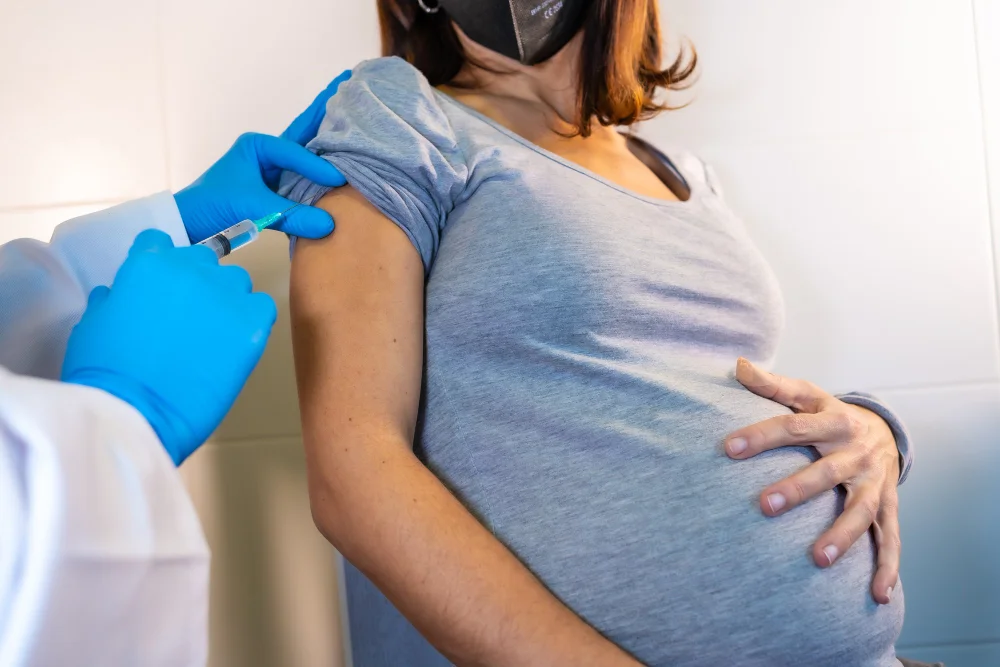As infectious diseases like Zika virus, influenza, and Ebola continue to pose significant threats to global health, the vulnerabilities of certain populations become more apparent. Among those particularly at risk are pregnant women and their offspring, who often face a double burden: increased susceptibility to infection and a historical exclusion from vaccine research, resulting in a gap in protection during outbreaks. The Pregnancy Research Ethics for Vaccines, Epidemics, and New Technologies (PREVENT) Working Group offers a comprehensive Guidance to rectify these omissions by providing 22 recommendations to ethically and practically include the interests of pregnant women in vaccine research and response efforts. This guidance may represent a turning point in how we prepare for, research, and respond to epidemics, ensuring that the health interests of pregnant women and their offspring are justly considered and protected.
The Unique Plight of Pregnant Women in Epidemics
Recent outbreaks, such as those caused by Zika virus, influenza, and Ebola, have brought to light the special circumstances faced by pregnant women during health crises. These disease threats can have catastrophic impacts, uniquely affecting pregnant women and their developing fetuses, leading to adverse outcomes such as congenital anomalies, miscarriage, and even maternal death. Despite this, historically, pregnant women have largely been excluded from vaccine research due to ethical concerns and liability fears, leading to a lack of evidence-based practices for protecting them during outbreaks.
A Guiding Light: PREVENT Working Group’s Ethical Framework
The PREVENT Working Group, a team of global experts, has stepped into this breach. Their landmark publication in the journal Vaccine (DOI: 10.1016/j.vaccine.2019.01.011) outlines a roadmap for the inclusion of pregnant women in vaccine research and public health initiatives. This guidance calls for prospective planning and proactive measures to protect the health interests of both mothers and children.
Highlights from the Recommendations
The 22 concrete recommendations from the PREVENT Working Group are as follows:
1. Prioritize the Development of Vaccines: Vaccines targeting pregnant women should be a priority to mitigate risks posed by pathogens.
2. Fortify Research Efforts: Allocate sufficient funding to study the safety and efficacy of vaccines for pregnant women.
3. Informed Consent: Ensure meaningful informed consent processes tailored for vaccine studies involving pregnant women.
4. Risk and Benefit Analysis: Carefully weigh the risks of including or excluding pregnant women from research against the potential benefits to both mother and child.
5. Regulatory Considerations: Require tailored regulation that facilitates the responsible inclusion of pregnant women in research.
6. Community Engagement: Engage with communities to understand the perceptions and concerns of pregnant women in relation to vaccines.
7. Global Collaboration: Foster international collaboration to standardize practices and share data.
8. Emphasize Equity: Promote equitable access to vaccines for pregnant women, regardless of geographic or socioeconomic status.
Conflicts of Interest in Medical Research
The matter of conflicts of interest is a sensitive topic in the medical research community. Members of the PREVENT Working Group and authors, including Ruth A. Karron, Jon S. Abramson, and Bruce G. Gellin, have disclosed receiving grants and personal fees from various organizations including vaccine manufacturers and foundations. David C. Kaslow’s funding support from the Bill and Melinda Gates Foundation was also noted. Transparency in these matters is critical to maintaining trust in the research process and the recommendations put forward.
Building on Past Research and Guidance
The recommendations from the PREVENT Working Group are built on previous attempts to sketch out ethical considerations for research involving pregnant women. These include the works of Johnson et al. on the global mortality of the 1918-1920 “Spanish” influenza pandemic, Jamieson et al. on emerging infections and pregnancy, and the ACOG committee opinion on the ethical inclusion of women as research participants, among others.
Conclusion
The PREVENT Working Group’s guidance represents an essential step forward in addressing the historical oversight of pregnant women in vaccine research and public health responses to epidemics. Implementing these recommendations will require sustained effort and global collaboration. However, there is a clear moral imperative to ensure that pregnant women are no longer left behind when new threats to public health emerge.
References
1. Krubiner CB, Faden RR, Karron RA, et al. Pregnant women & vaccines against emerging epidemic threats: Ethics guidance for preparedness, research, and response. Vaccine. 2019 Jan 3;39(1):85-120. DOI: 10.1016/j.vaccine.2019.01.011
2. Johnson NP, Mueller J. Updating the accounts: global mortality of the 1918–1920 “Spanish” influenza pandemic. Bull Hist Med. 2002;76(1):105–115. DOI: 10.1353/bhm.2002.0022
3. Jamieson DJ, Theiler RN, Rasmussen SA. Emerging infections and pregnancy. Emerg Infect Dis. 2006 Nov;12(11):1638. DOI: 10.3201/eid1211.060152
4. American College of Obstetricians and Gynecologists (ACOG). Ethical considerations for including women as research participants. Obstet Gynecol. 2015;126(5):e100–e107. DOI: 10.1097/AOG.0000000000001213
5. World Health Organization (WHO). Guidance for managing ethical issues in infectious disease outbreaks. World Health Organization; 2016. Available from: https://www.who.int/ethics/publications/infectious-disease-outbreaks/en/
SEO Keywords
1. Maternal immunization guidelines
2. Vaccine research during pregnancy
3. Epidemic preparedness ethics
4. Vaccination in infectious disease outbreaks
5. Ensuring safety for pregnant women vaccines
